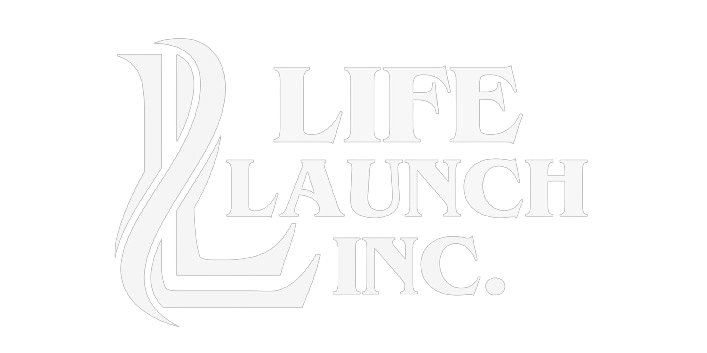
Introduction
The formerly incarcerated face significant challenges upon re-entering society, including finding stable employment, rebuilding relationships, and overcoming stigma. This assessment and pre-employment screening program aims to empower these individuals by helping them identify and develop the critical soft skills, life skills, and job-specific skills needed to succeed in the workplace. By assessing their current abilities and providing personalized training and support, we can create pathways for the formerly incarcerated to secure meaningful employment and become self-sufficient contributors to their communities.
Importance of Soft Skills, Life Skills, and Job Skills
Enhancing Employability
Soft skills, life skills, and job skills are crucial for the formerly incarcerated as they seek to reintegrate into the workforce. These skills go beyond technical expertise and help individuals present themselves as well-rounded, adaptable, and valuable employees. Possessing these skills can significantly improve their chances of securing employment and succeeding in their chosen careers.
Effective Communication
Strong communication skills, including active listening, conflict resolution, and interpersonal interaction, are highly valued by employers. The ability to convey ideas clearly, work collaboratively, and build positive relationships with colleagues can set the formerly incarcerated apart and demonstrate their readiness to contribute to a professional environment.
Problem-Solving and Critical Thinking
Developing critical thinking and problem-solving skills empowers the formerly incarcerated to tackle challenges, make informed decisions, and adapt to changing circumstances. These abilities showcase their capacity to think independently, be resourceful, and find innovative solutions, which are highly desirable traits for employers.
Personal Accountability
Demonstrating personal accountability, including time management, reliability, and the ability to take responsibility for one’s actions, can help the formerly incarcerated rebuild trust and demonstrate their commitment to professional growth. These life skills showcase their maturity, discipline, and readiness to contribute to a workplace environment.
Assessment Methodology
To comprehensively evaluate the soft skills, life skills, and job-specific competencies of the formerly incarcerated individuals, we employ a multi-faceted assessment methodology. This process involves a combination of standardized assessments, behavioral interviews, and hands-on skill demonstrations.
- Standardized Assessments: Participants will complete a series of validated psychometric tests and inventories designed to measure their aptitude, personality traits, emotional intelligence, and problem-solving abilities. These assessments provide objective data points that allow us to gauge an individual’s strengths, weaknesses, and overall readiness for employment.
- Behavioral Interviews: Our team of trained experts will conduct in-depth interviews with each participant, delving into their past experiences, decision-making processes, and interpersonal dynamics. This qualitative approach enables us to gain deeper insights into the individual’s soft skills, such as communication, teamwork, and adaptability, which are often crucial for success in the workplace.
- Hands-on Skill Demonstrations: Participants will be asked to engage in role-play scenarios, problem-solving exercises, and hands-on skill demonstrations that align with the specific job requirements of their target industries. This practical assessment allows us to evaluate their technical proficiency, critical thinking, and ability to apply their knowledge in real-world situations.
By integrating these complementary assessment methods, we are able to develop a comprehensive understanding of each individual’s abilities, potential, and areas for improvement. This holistic approach ensures that the results of our assessment process accurately reflect the participant’s readiness for successful employment and long-term career growth.
Skill Evaluation Criteria
Soft Skills Assessment
To evaluate the soft skills of the formerly incarcerated individuals, we will assess their interpersonal abilities, communication styles, problem-solving skills, and adaptability. Through a series of interactive exercises and situational interviews, we will gauge their emotional intelligence, leadership potential, and ability to work collaboratively in a team-based environment. This comprehensive assessment will help us identify their key strengths and areas for improvement, enabling us to create personalized development plans.
Life Skills Evaluation
The life skills assessment will focus on evaluating the formerly incarcerated individuals’ practical problem-solving abilities, financial literacy, time management, and self-care practices. We will use a combination of written tests, hands-on simulations, and one-on-one discussions to assess their preparedness for the challenges of everyday life and their capacity to make informed decisions that support their long-term well-being and success.
Job-Specific Skills Evaluation
In addition to the soft and life skills assessments, we will also evaluate the job-specific skills of the formerly incarcerated individuals. This will involve assessing their technical proficiencies, industry-relevant knowledge, and ability to apply their skills in a professional setting. We will utilize a mix of skills-based tests, hands-on demonstrations, and role-play scenarios to gauge their readiness for the specific job opportunities we have identified as potential matches.
Holistic Approach
By taking a holistic approach to the skills assessment, we aim to gain a comprehensive understanding of each individual’s strengths, weaknesses, and overall employability. This information will be crucial in guiding our personalized skill development plans and ensuring that we match the formerly incarcerated individuals with job opportunities that align with their unique capabilities and career goals, ultimately increasing their chances of long-term success and fulfillment.

Identifying Strengths and Weaknesses
Accurately identifying one’s own strengths and weaknesses is a crucial first step in creating an effective skills development plan. This assessment process allows formerly incarcerated individuals to take an honest, reflective look at their unique abilities, talents, and areas that need improvement. By understanding their current skill set, they can then strategically focus their efforts on building the capabilities that will be most valuable for securing meaningful employment and achieving long-term career success.
The assessment methodology uses a combination of self-evaluation, skills testing, and feedback from trained professionals to paint a well-rounded picture of each participant’s strengths and weaknesses. This multi-faceted approach helps to ensure an objective, data-driven analysis that minimizes personal biases or blind spots. Participants will gain deep, actionable insights that empower them to make informed decisions about their personal growth and development.
Personalized Skill Development Plan
Based on the comprehensive assessment of your soft skills, life skills, and job-specific skills, we will work closely with you to develop a personalized skill development plan. This plan will be tailored to your unique strengths, weaknesses, and career goals, with the aim of enhancing your employability and setting you up for long-term success. Our team of experienced counselors will guide you through this process, providing the resources, training, and support you need to reach your full potential.
The first step will be to clearly identify the areas where you excel and the areas that need improvement. We will discuss your aspirations and help you set achievable milestones along the way. Together, we will create a detailed roadmap that outlines the specific skills you will develop, the training programs you will participate in, and the timeline for completing each stage. This personalized approach ensures that you are not only acquiring the necessary skills but also building confidence and momentum as you progress.
Throughout the process, you will receive regular feedback and have the opportunity to reassess your goals as needed. Our team will work closely with you to address any challenges or obstacles you may face, providing encouragement and personalized support every step of the way. By the end of this journey, you will have not only honed your skills but also developed a renewed sense of purpose and self-belief, making you a more attractive and valuable candidate to potential employers.

Employer Matching and Placement
1. Employer Outreach
Our team proactively reaches out to a diverse network of employers, both large corporations and local businesses, to educate them on the benefits of hiring the formerly incarcerated. We highlight the unique skills and perspectives these candidates can bring to the workforce, and work closely with employers to address any concerns or misconceptions they may have. This open dialogue helps build trust and paves the way for successful placements.
2. Skills Matching
Based on the comprehensive assessment of each candidate’s soft skills, life skills, and job-specific competencies, our team carefully matches them with open positions that align with their strengths and interests. We take the time to understand the specific requirements of each role and ensure that the placement is a mutually beneficial fit for both the employer and the candidate.
3. Personalized Support
Throughout the placement process, we provide ongoing support to both the employer and the candidate. This includes preparing the candidate for interviews, coaching them on workplace etiquette and communication, and advocating for their success within the organization. We also work closely with the employer to address any concerns or challenges that may arise, ensuring a smooth transition and fostering a supportive work environment.

How did you spend your time away
During the time I was incarcerated, I made a conscious effort to use that period productively and prepare myself for a successful reentry into society. While the experience was undoubtedly challenging, I tried to focus on personal growth, skill development, and maintaining a positive outlook for the future. I enrolled in vocational training programs to learn valuable job skills, such as carpentry, plumbing, and computer repair. I also participated in rehabilitation courses that helped me address the underlying issues that contributed to my past mistakes, including anger management, addiction treatment, and financial literacy workshops. In my free time, I read extensively, exercised regularly, and explored creative outlets like writing and art.
Additionally, I took advantage of educational opportunities within the correctional facility, earning my high school equivalency diploma and even completing several college-level courses. This has given me a strong foundation to build upon as I transition back into the workforce. I’m grateful for the chance to have used my time away productively and am eager to apply the skills and knowledge I’ve gained to make a positive impact in my community and contribute to the workforce.

What are your career goals
1. Secure Stable Employment
My primary career goal is to secure stable and meaningful employment that will allow me to build a sustainable career and provide for myself and my family. After my incarceration, I am eager to reintegrate into the workforce and demonstrate my skills, work ethic, and reliability to potential employers.
2. Secure Stable Employment
In addition to finding a stable job, I am also committed to continually developing my skills and knowledge. I plan to seek out training opportunities, certifications, and other professional development resources to enhance my qualifications and become a more valuable employee. My goal is to always be growing and improving in my chosen field.
3. Contribute to My Community
Beyond just securing employment for myself, I also have a strong desire to give back to my community and make a positive impact. I would like to find a job or role where I can use my experiences and skills to mentor others, advocate for criminal justice reform, or support programs that help the formerly incarcerated reintegrate successfully.
4. Achieve Financial Stability
Ultimately, my career goals are centered around achieving long-term financial stability and security. I want to build a career that allows me to not only support myself, but also save for the future, provide for my family, and work towards achieving my personal and financial goals. This will be a key measure of success for me as I navigate the job market and plan my career path.
Contact Us
At Life Launch, we’re dedicated to helping the formerly incarcerated find meaningful employment and set themselves up for long-term success. If you’re interested in our comprehensive assessment and placement services, we encourage you to reach out to us at info@lifelaunchinc.org. Our team of experts will work closely with you to evaluate your unique skills and strengths, develop a personalized skill development plan, and connect you with employers who are committed to giving you a second chance. We believe that everyone deserves the opportunity to thrive, and we’re here to support you every step of the way.
